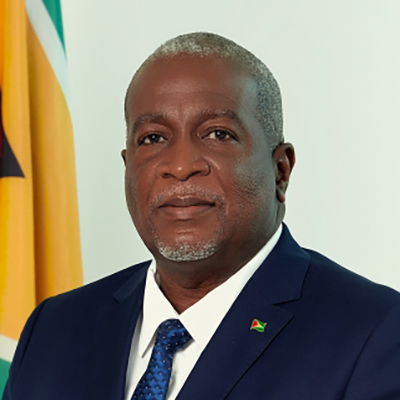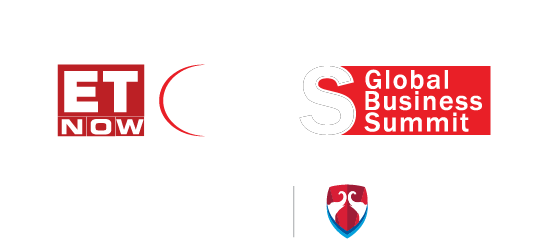Mark Anthony Phillips

Prime Minister of Guyana
Brigadier Mark Anthony Phillips was sworn in as the 9th Executive Prime Minister of the Cooperative Republic of Guyana under President Dr. Mohamed Irfaan Ali on August 2, 2020.
He served as the Chief of Staff of the Guyana Defence Force (GDF) from 2013 to 2016.
Brigadier Phillips has two Postgraduate Diplomas: one in Advanced Defense and Security Studies from the Inter-American Defense College in Washington D.C., and another in Defence Studies from the United States Army Command and General Staff College (CGSC) in Fort Leavenworth, Kansas. He also earned a Bachelor of Social Sciences in Public Management from the University of Guyana and a Master of Science in Public Sector Management from La Pontificia Universidad Católica Madre y Maestra.
He was first employed as an Acting teacher at the Linden Foundation School, then as a Laboratory Analyst with the Bauxite and Alumina Labs of GUYMINE in 1980.
In December 1980, he joined the Guyana Defence Force as an Officer Cadet and travelled to the United Kingdom for military training on the Standard Military Officers’ Course Number 26 at the prestigious Royal Military Academy Sandhurst in September 1981. Trained in Brazil, he served as a Special Forces Officer and he is an accomplished Parachutist and Jumpmaster. Thereafter, he held appointments at the tactical and operational levels of the Guyana Defence Force and retired as Brigadier and Chief of Staff in October 2016 having served for over 36 years. He is a recipient of the Military Service Star (MSS), the highest national military award in Guyana.
Immediately following his retirement in October 2016, Brigadier Phillips was inducted into the International Hall of Fame of the United States Army Command and General Staff College (CGSC), Kansas, USA. This honour is bestowed to graduates who would have achieved the highest military office in their respective countries.
2020 General and Regional Elections in Guyana
Brigadier Phillips was chosen as the running mate of People’s Progressive Party/Civic (PPP/C) Presidential Candidate Dr. Mohamed Irfaan Ali in the Guyana 2020 General and Regional Elections.
On August 2, 2020, the People’s Progressive Party/Civic was officially declared the winner of the 2020 General and Regional Elections in Guyana. On that same day, Dr. Mohamed Irfaan Ali was sworn in as the 9th Executive President of the Cooperative Republic of Guyana and as his first official act as President, appointed Brigadier Mark Phillips as Prime Minister of Guyana. Brigadier Phillips also serves as the First Vice President of Guyana.
Following his appointment as Prime Minister, the Hon. Brigadier Mark Phillips was assigned the following portfolios by President Dr. Mohamed Irfaan Ali:
- Energy Sector
- Civil Defence Commission (CDC)
- Information Sector
- Telecommunications Sector
Brigadier Phillips as Prime Minister sits on the Defence Board of Guyana.
Brigadier Phillips is the father of four adult children and is married to Mignon Bowen-Phillips.
